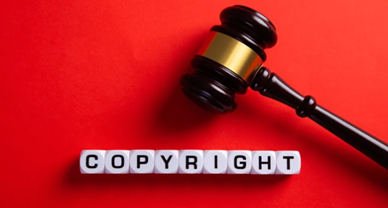IPLF Providing a One-Stop Solution for Trademark Services
The brand value of the business is the greatest asset for it. In the domain of this brand come various such prospects associated with it. The face of the business which primarily is their brand name or slogan or logo holds an economic value. The brand name must be protected from any infringement since it represents the business or company in the market. With the advent of globalization of trade, brand names, trade names, marks, etc. have attained an immense value that requires a uniform minimum standard of protection and efficient procedures for enforcement.
Trademark Registration

In India, law, and provisions related to Trademarks are governed under The Trademarks Act, 1999, and the Trademarks Rules, 2002, as may be amended from time to time. Trademark means a mark that is capable of being graphically represented and could potentially distinguish goods and/or services of one person from those of others and it may include the shape of goods, packaging, color combination, etc. “Trademark” may include a device, name, signature, word, numeric value, the shape of goods, packaging or colors, and combination of colors or any combination thereof. Further Section 7 of the Trademark Act, 1999, provides for the classification of goods and services in accordance with the International Classification for registration of Trademarks. To comply with the said provision, the Trademark registry refers to NICE Classification which can be accessed here. It specifies goods under class 1-34 and services under class 35 to 45.
The registration of the trademark is not mandatory but it is highly advised to get it registered. Having a registered trademark prevents others from copying the mark and also gives an upper hand if any such litigation issue arises. Having a strong trademark is highly advised since this helps the customer to differentiate a brand from another, and recognize the brand and the brand value in a single glance. Various such examples can be cited as that of the logo of Mcdonald or Mercedes Benz etc. The registration of the trademark is for a lifetime based on it being renewed every 10 years.
Trademark opposition
After the trademark application is filed and gets published in the Trademark Journal, the third party gets 4 months to file the opposition proceeding against the said mark. If there is no such opposition, then the trademark moves further for registration. While having the opposition the applicant gets an opportunity to file the counter-statement against the opposition. There are two grounds on which the trademark opposition can be filed and they are either absolute ground(s) for refusal under Section 9 of the Trademark Act or on relative grounds of refusal under Section 11 of the Trademark Act. The right to oppose has been given to any individual who can be a buyer, client, or an individual from the public prone to utilize the merchandise or profit the administrations and can also incorporate people, organizations, association firms, and trusts.
The experienced team of IPLF is there to meet all the expectations of the clients in terms of filing the opposition or filing the counter statement.
Trademark Renewal
The trademark renewal process occurs every 10 years. An application for the renewal of a trademark shall be made under Form TM-R along with the prescribed Government fee, anytime within six months before the expiry of the registration of the mark. The trademark will be deemed to be removed from the TM Register if the applicant fails to file the TM-R form with the requisite fee within the stipulated time. Trademark renewal shall preserve all the rights that were previously available to it before the expiry of the duration. In case the proprietor fails to renew the trademark, he loses all the protection that comes along with registration.
The trademark team at IPLF has provided the clients with services of renewal of their trademark.
Trademark Litigation
With the rising number of businesses and competition, saving the brand name is altogether a tough task. There are various instances that the trademark has been under scrutiny for infringing someone’s other trademark. There are various reasons for trademark litigation, the foremost is to get an injunction against the use of the mark. Adding on to this most of the suit demands appropriate compensation be provided to registered trademark owners who have suffered damages to their business in lieu of such infringement.
The experienced trademark team of IPLF has handled hundreds of Trade Mark Oppositions and numerous major litigation matters in various jurisdictions. Our trademark attorneys have dealt with numerous cases with national and international repute, and provide rigorous and broad services in connection with trademark litigations all around India and at a global level.
Author: Saransh Chaturvedi (an advocate) currently pursuing LLM from Rajiv Gandhi School of Intellectual Property Law (IIT Kharagpur). In case of any queries please contact/write back to us at support@ipandlegalfilings.com.


